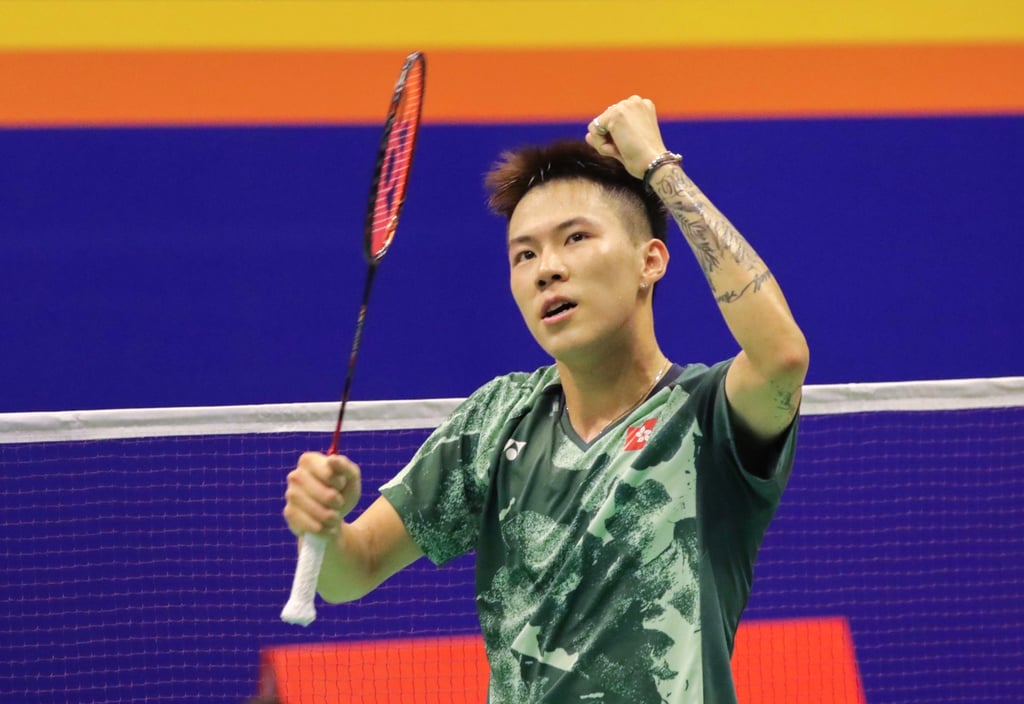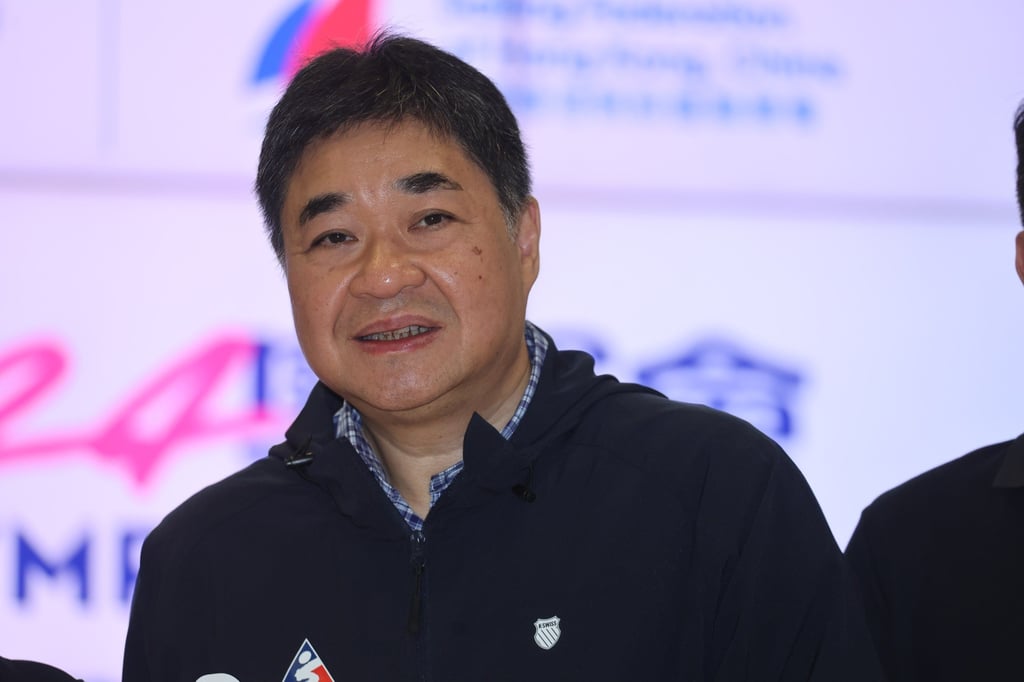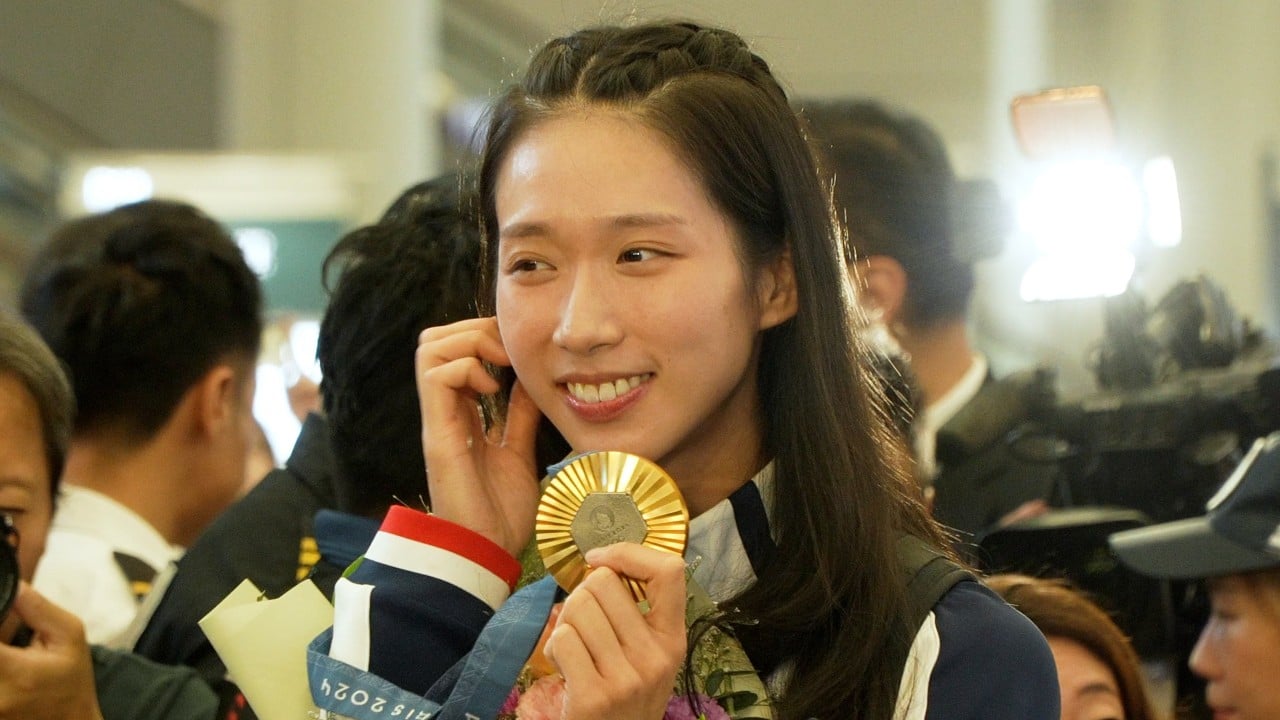The head of a Hong Kong sports body has encouraged businesses to cash in on athletes’ star power to help develop the sector, amid concerns that current subsidies remain too low to retain promising talent.
Tony Choi Yuk-kwan, chief executive of the Hong Kong Sports Institute (HKSI), said that government subsidies for athletes should not be seen as salaries and added that commercial sponsorships would help to develop the sector.
“Sports are similar to performing arts. When you look at sports stars such as Cheung Ka-long and Siobhan Haughey, the more people recognise them, the happier they are,” he told a radio programme on Saturday.
“The people will cheer for them and give them applause, providing a driving force for their pursuits … having sports celebrities can drive the development of the whole industry and we now see a proliferation of fencing schools.”
Choi also dismissed fears that athletes could spend too much time on celebrity endorsements instead of training and argued they would be guided by their coaches on how to best manage their time.
Renewed discussions about financing athletes started after city fencers Cheung Ka-long and Vivian Kong Man-wai took home gold and swimmer Siobhan Haughey won two bronze medals at the Paris Olympics.
Cheung has endorsed at least seven brands, including luxury fashion line Dior, while Haughey is serving as a Cathay Pacific Airways brand ambassador. Both are estimated to be making millions of Hong Kong dollars in endorsement fees.
Some athletes have previously faced a backlash from internet users claiming the sportspeople were spending more time modelling than training.
But Lobo Louie Hung-tak, associate head of the Education University of Hong Kong’s health and physical education department, said there was no cause for concern that the city’s Olympians would neglect their training because of commercial activities.
“The maximum training hours for them are about 25 hours per week, so they also have plenty of free time for themselves every day to manage other affairs,” he said.
“Usually they will have their own agents to help them manage their commercial activities, and they are experienced athletes who know how to manage their time without affecting their training.”
Louie said such athletes knew their commercial value rested on their sports performance, meaning they would work hard to keep up with their training.
Awards for the medallists have since poured in from the private sector, including the Hong Kong Jockey Club, the Ng Teng Fong Charitable Foundation, a charity set up by and named for property developer Sino Group’s founder, and restaurant operator LH Group.
Vincent Cheng Wing-shun, the HKSI vice-chairman, agreed with Choi and suggested the government could provide tax exemptions to private institutions that sponsored active or retired athletes’ celebrity endorsements.
He added that reliance on government subsidies alone would not be enough to ensure athletes’ development.
“We are very concerned about athletes making a living. They may find it difficult relying only on entry-level government subsidies, so HKSI has been helping them get some commercials that are deemed appropriate,” Cheng said.
“We hope to encourage more commercial institutions to provide support such as funding or investment for athletes apart from the government subsidies.”
Concerns have been raised about how far the present subsidies can support would-be star athletes. Some consider the amounts too low, which has forced promising candidates to give up their dreams.

Badminton player Lee Cheuk-yiu was among those who highlighted that many athletes had given up because of the low levels of financial support.
The 27-year-old said at one point that he only received HK$7,000 (US$898) a month under the government’s entry-level subsidies after he left school to become a full-time athlete.
“I was 16 years old and HK$7,000 was like pocket money to me. But for athletes who do not have a higher rank, it is their monthly salary.”
He called for the amount to be at least equal to the city’s minimum wage.
Under the Hong Kong Sports Institute’s elite training grant, those who have qualified to compete in the Olympic Games are paid HK$11,520 a month.
The amount increases with rankings and medals in the Games and other competitions. Medallists in world championships and the Olympics get a standard grant of up to HK$44,500.
Choi said the institute would review its training grant in September, with a report to be released early next year and new arrangements to be implemented in April as the organisation sought to increase subsidies and adjust its eligibility threshold.
But he defended the government subsidy mechanism and highlighted it was divided into six levels.
Choi explained the HK$7,000 subsidy was only for entry-level junior athletes to cover training, with other subsidies for food, accommodation, medical expenses and school fees.

The subsidies should not be regarded as salaries,” he said.
“If they are full-time athletes, we will give them a pathway to get training.
“It’s a fact that the subsidy will not provide a comfortable living for them, but we have other supporting measures such as free meals and accommodation and comprehensive support such as tuition fees for studying in universities.”
Li Ching, head coach of Hong Kong’s table tennis team, said on Saturday that the subsidies were much better than when he had been an athlete, noting he only received HK$3,000 each month at the time.
He added that the support and facilities provided by the Hong Kong Sports Institute were also sufficient, but welcomed any additional funding and resources.
Additional reporting by Harvey Kong



-%C3%98nders_TrackClub.00_01_59_00.Still002.jpeg?itok=yPfun2YH)